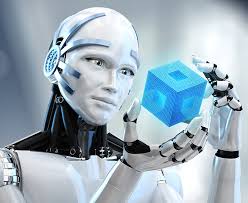Source – desertsun.com
Day after day we read in our news media, and hear on the radio or TV, these two letters: “AI” meaning ARTIFICIAL INTELLIGENCE. What do we really know about AI?
Let’s begin with a dictionary definition:
AI is the theory and development of computer systems able to perform tasks that normally require human intelligence. It is exhibited by machines which mimic “cognitive” functions that humans associate with other human minds, i.e. making machines behave in ways that would be called intelligent if a human were so behaving.
This leads to asking what is Human Intelligence (HI), the definition of which is very controversial. An op-ed statement in the Wall Street Journal appeared in a 1995 with 52 researchers agreeing to define HI as a very general mental capability that, among other things, involves the ability to reason, plan, solve problems, think abstractly, comprehend complex ideas, learn quickly and learn from experience. It is not merely book learning, a narrow academic skill, or test-taking smarts. Rather, it reflects a broader and deeper capability for comprehending our surroundings — “catching on,” “making sense” of things, or “figuring out” what to do.
We all have been given IQ tests, purported to measure the level of our Intelligence; however, if we are to accept the above definition of HI it must be questioned if a machine with AI will ever actually comprehend its surroundings — “catch on,” “make sense” of things, or “figure out” what to do.
Today, much of routine technology such as optical character or face recognition is excluded from AI. Companies such as Google’s Deepmind are attempting to develop programs which can learn to solve any complex problem without needing to be taught how, but their engineers admit they are suffering from painfully slow progress. In contacting academia, I have been told the primary goal of IT is to produce a machine which is able to perform any intellectual task that a human can do.
This may be achieved when our present binary digital computers are replaced by super-efficient, super-fast computers using quantum bits instead of transistors. I do not truly understand the technology, so I must take this on faith! But if this goal is achieved, it would mean that a robot-soldier would react to a life-threatening situation in combat as a human soldier would react.
Members of academia have presented tests machines would need to pass in order to be classified as having human-level AI. Scientist Alan Turing’s test is one: A machine and a human both converse sight unseen with a second human, who must evaluate which of the two is the machine. If the human expressed strong anger or sadness, the machine would need to respond in kind. More recently in Tokyo, a research team is trying to create an AI program that has enough smarts to pass Japan’s most rigorous university entrance exams.
Computers already show superhuman performance at many tasks, however they are not called Intelligent. Fool’s gold seems to be gold, but isn’t; AI seems to be intelligent, but isn’t yet.
Yes, people should be concerned about the future of AI, however ARTIFICIAL INTELLlGENCE (AI) should not be used to describe self-driving vehicles and the many super-high-speed computing unintelligent machines of today!
